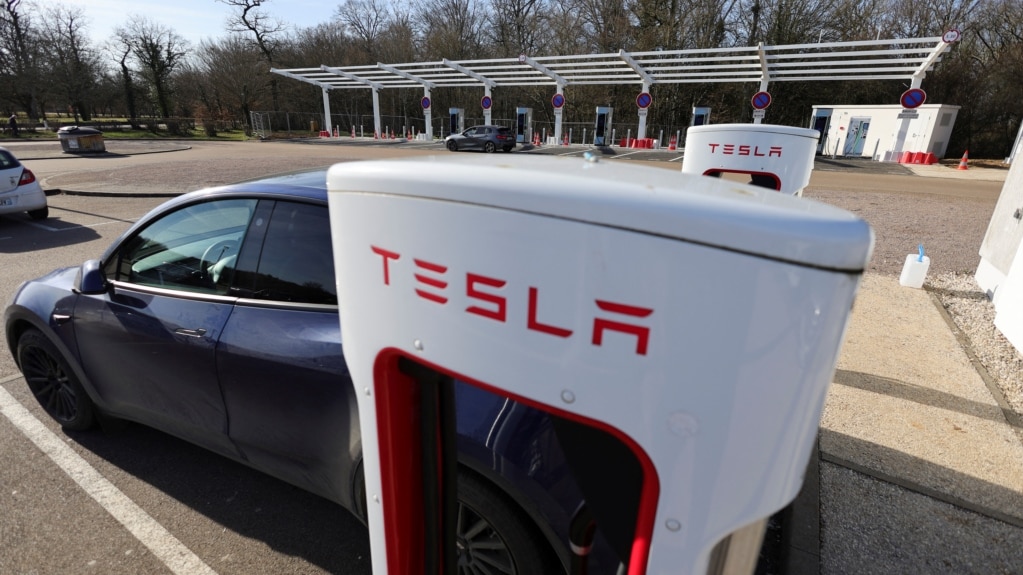American electric carmaker Tesla has broken ground on a new lithium processing center it says will support the production of up to 1 million vehicles by 2025.
When completed, the factory in the state of Texas will be the largest lithium processor in North America, Reuters news agency reported. The operation will push Tesla outside its main business of manufacturing electric vehicles (EVs). Lithium-based batteries are used to power most EVs.
Tesla chief Elon Musk said at a recent ground-breaking ceremony the processing center will be required for the company to reach its EV sales targets. He explained that in just a few years, lithium supplies worldwide are expected to face major shortages.
Musk said Tesla aims to complete construction of the factory next year. It is expected to reach full production about one year later.
The move will make Tesla the only major automaker in North America to refine its own lithium. Currently, China is the biggest processor of many in-demand minerals, including lithium.
Texas Governor Greg Abbott attended the ceremony. He said, "Texas wants to be able to be self-reliant, not dependent upon any foreign hostile nation for what we need. We need lithium."
Musk did not give an exact estimate for how much lithium the factory would process each year. But he did say Tesla would continue to buy lithium from two U.S.-based companies it currently uses, Albemarle and Livent. “So it's not that Tesla will do all of it," Musk noted.
Albemarle plans to build a lithium processing center in South Carolina that will aim to refine 100,000 tons of the substance each year. Building on that project is expected to begin next year.
Musk did not say where Tesla will get the unprocessed lithium, which is known as spodumene concentrate. Currently, the company has supply deals with North Carolina-based Piedmont Lithium and others.
Tesla said it will avoid the lithium industry's traditional refining process, which depends on sulfuric acid and other strong chemicals. Instead, the company said it plans to use materials that cause less environmental harm, such as soda ash.
"You could live right in the middle of the refinery and not suffer any ill effect,” Musk said. “So they're very clean operations." Local media reported, however, that some environmental activists had raised concerns over the processing center.
I’m Bryan Lynn.

